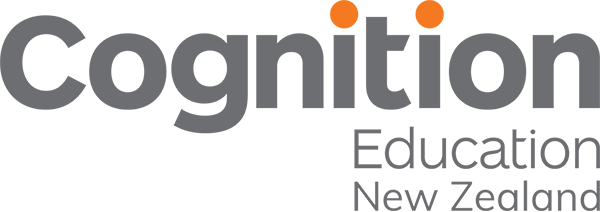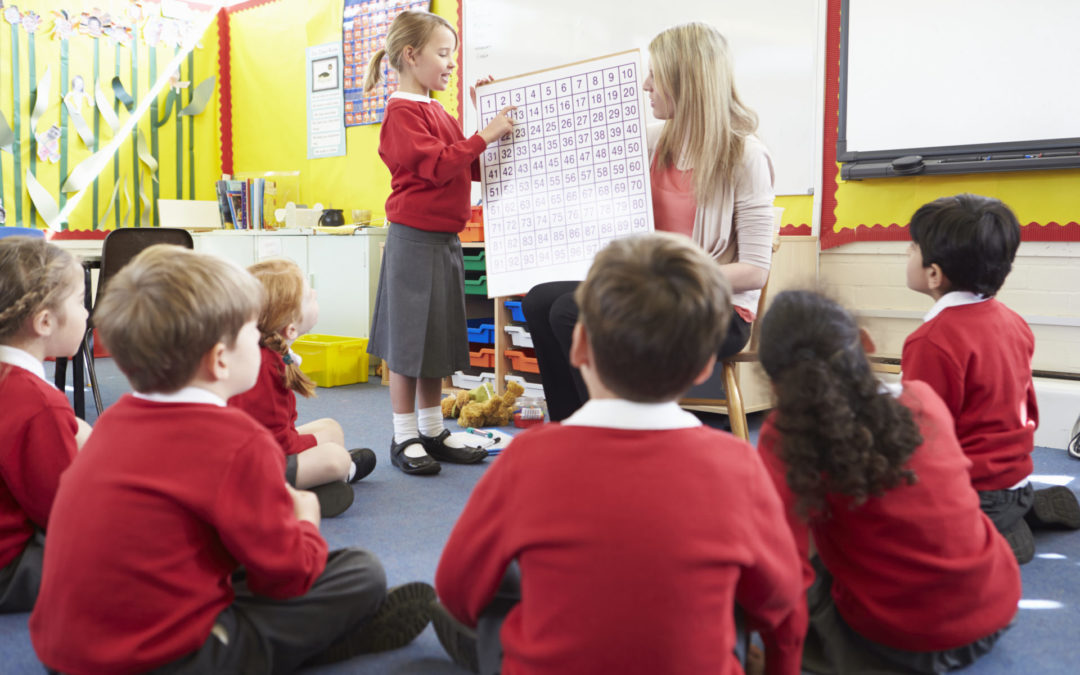We know and understand the power of collaborative practice in teaching and learning. We also know that supporting our learners to collaborate effectively is a critical skill. Employers are telling us that the ability to work together to create impact is a skill they are looking for in employees and we all know the benefit of being actively engaged with our colleagues to grow our work. Working as a PLD consultant at Cognition Education provides many opportunities to collaborate and in its most powerful form, it provides a platform for improving the outcomes for our learners – the teachers.
I recently had the opportunity to collaborate with my colleague Heather Lewis who is a Mathematics PLD consultant. Heather is the National Leader of Mathematics Interventions (NLMI), managing and ensuring quality delivery of Mathematics programmes across New Zealand. Heather and I had previously had discussions about the importance of talk in Maths and we decided to spend some time together, learning more about each other’s work and working to build connections and synergy that will support all our learners.
Our discussion led to the value and power of “Talk Moves” (Chapin, O’Connor & Anderson, 2009) as a Mathematics strategy. This strategy is highly valued by many in the Mathematics discipline however there are still a lot of questions around deployment and effectiveness. We wanted to investigate further about ‘why’ it is sometimes challenging to implement effective “Talk Moves” strategies and what we might be able to do to support teachers and learners further.
Michaels & O’Connor (2015) confirm our hunch and agree that simply knowing that productive talk in Maths is important is not enough. Their research shows us that the simple deployment of “Talk Moves” does not ensure the effectiveness of classroom Mathematics discussions or even quality learning. Disconcertingly, they found the most common form of teacher-led group talk in Maths is still recitation (where the teacher initiates a question, a student responds briefly, and the teacher evaluates the student contribution as correct or incorrect) and alarmingly found that it still accounts for over two thirds of the talk in the Mathematics classroom. We still, however, know that Maths talk is important and the National Council of Teachers of Mathematics (2014) point out the importance of rich discourse in the Mathematics classroom and advocate working in pairs, small group and even in whole class discussions. We KNOW but how can we DO?
Here is the reality. For many learners, the foundation skills of oral language have not been embedded. This is no surprise when we look at where oral language sits within the New Zealand Curriculum. It’s woven into the literacy progressions, a seemingly natural place to sit but it simply has not had an ‘outing’ in the Mathematics curriculum. The ERO Oral Language Report (2017) states that past oral language interventions have been predominantly literacy-focused and that there is a need to embed them into the broader curriculum. In my experience, most teachers don’t explicitly teach oral language and most learners don’t understand the learning progressions of oral language. Talk is everywhere in learning spaces, but it is usually not assessed or even unpacked for learners. Oral language data needs to be used to inform teaching across all curriculum areas and an interdisciplinary approach needs to be implemented school-wide. In my work, once we start building teacher capability in oral language, we often notice that much of the talk in the classroom is coming predominantly from the teacher and this aligns with Michaels & O’Connor (2015) findings.
So, what can we do? Heather and I decided that the best approach is to build teachers knowledge around the foundation skills of oral language. I refer to these as fluency, clarity and accuracy. Fluency about having the ability to say what I am thinking or wanting, and we need to build learners’ confidence to do this. Clarity is having the ability to form the sounds of my language, and accuracy is about having the right vocabulary and the ability to understand and apply context to my talk. Once teachers have gathered the data about student capability in these foundation skills, appropriate interventions can be applied. Then we can get talking about Maths. Ghousseini, Lord & Cardon (2017) have identified other actions that need to be in place in the Mathematics classes. If we contextualise these for an NZ classroom, they look like this.
Teachers need to be:
- Modelling the nature of collaboration (not just in Maths but in all our practice).
- Providing opportunities for guided Maths talk using tuakana teina models and more.
- Offering resources that support Maths talk. This needs to have depth and go well beyond the traditional talking frame model (which if we really think about it are ‘writing’ frames).
- Prepare learners to engage in small group discussions about Maths.
I would add to this model by including the need for us to leverage the cultural and linguistic diversity of our learners. Here’s a question for you – does Maths talk have to be in English? Of course not! Our home languages are important and need not be shut out of our classrooms but this a blog post for another time – watch this space.
In summary, we know the positive impact effective Maths talk has on learner progression and now it is time to start building learners capacity to actually participate in the talk.
Contact Del Costello at DCostello@cognitioneducation.com or Heather Lewis HLewis@cognitioneducation.com for more information about Mathematics and Oral Language PLD.
References
Chapin, S., O’Connor, C., & Anderson, N. (2009). Classroom Discussions: Using Math Talk to Help Students Learn, Grades K-6 (second edition). Sausalito, CA: Math Solutions Publications.
Ghousseini, H., Lord, S., & Cardon, A. (2017). Supporting math talk in small groups. Teaching Children Mathematics, 23(7), 422-428. doi:10.5951/teacchilmath.23.7.0422
Kazemi, E., Hintz, A. (2014) Intentional Talk: How to Structure and Lead Productive Mathematical Discussions. Steinhouse
Michaels, S., & O’Connor, C. (2015). Conceptualizing talk moves as tools: Professional development approaches for academically productive discussion. Socializing intelligence through talk and dialogue, 347-362. Retrieved 29/4/2019 from https://educacion.udd.cl/files/2018/04/Conceptualizing-Talk-Moves-as-Tools.pdf
National Council of Teachers of Mathematics (NCTM). (2014). Principles to actions: Ensuring mathematical success for all. NCTM Publishing ISBN 978-0-87353-774

